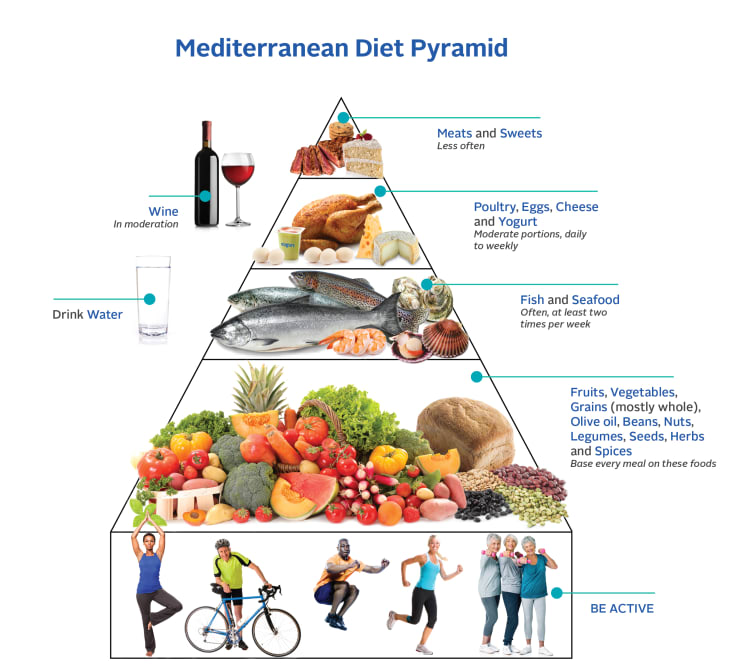Tell your heart: “Olive” you!
Countless studies give thumbs up to Mediterranean diet for heart health.
Article Date:

Stroll through the cookbook section of your local bookstore and you'll notice fad diets pepper every other cover.
They promise miraculous weight loss, improved heart health, immediate detox – even a cancer cure. But, what's the truth behind their glittering assurances?
Mediterranean diet ranks No. 1
In 2023, the Mediterranean diet topped U.S. News & World Report's top overall diet list for the sixth consecutive year.
Unlike other diets that may claim these impressive health benefits, the Mediterranean eating plan is backed by countless clinical trials and studies that all show it can help reduce cardiovascular disease risk, high blood pressure and cholesterol levels, said Pamela Rama, MD, a cardiologist with Baptist Heart Specialists.
"At Baptist Health, we encourage our patients to stick with the Mediterranean diet and its proven benefits," she added. "The Mediterranean diet is heart-healthy and also flexible. So you can be a vegan, vegetarian, pescatarian, or you may want to eat meat once in a while – you can still do it the Mediterranean way."
What is the Mediterranean eating plan?
The diet is adapted from the lifestyle of those in the Mediterranean region. It consists of:
- Fruits
- Vegetables
- Whole grains
- Nuts
- Legumes
- Olive oil and healthy fats
- Herbs and spices
- Fish and seafood (at least a couple of times a week)
- Poultry, eggs, cheese and yogurt in moderation
- Sweets and red meat for special occasions
While the Mediterranean diet doesn't restrict or eliminate any nutrient, it does discourage high-fat dairy products, processed meats and added sugars, Dr. Rama said. That's why it's important to read the food labels for any packaged items you consume.
Alcohol, particularly red wine, is also allowed in moderation, so you don't have to cancel wine night just yet.
A moderate amount of exercise is a Mediterranean health plan requirement, but it shouldn't be dreaded! Walking can be a step in the right direction, but doctors also suggest trying something a little bit more fun. "It needs to be something you will stick with," Dr. Rama recommended.
Why does the Mediterranean diet work so well?
According to Dr. Rama, every time a person eats processed foods high in concentrated sugars and triglycerides (a type of fat found in the blood), there is a correlated spike in inflammatory markers and insulin approximately two hours after the meal. This causes the release of superoxide and free radicals, which can ultimately result in changes to our DNA.
"We know that cardiovascular disease and cancers are promoted by inflammation, so you can see how a bad diet would increase the risk," Dr. Rama added.
Shortly after World War II, a scientist named Ancel Keys and his colleagues studied people in seven countries to see if the Mediterranean eating pattern contributed to improved health outcomes. Data from the United States, Japan, Italy, Greece, the Netherlands, Finland and then-Yugoslavia also showed that people who ate a diet rich in fruits and vegetables, grains, beans and fish were the healthiest.
Since then, hundreds of studies have proven eating the "Med way" may – in addition to reducing risk of heart disease – help lengthen your life, improve brain function, fight certain cancers, protect from diabetes, keep away depression, aid weight loss and more.

Keep your heart in shape
Baptist Health offers the region's most comprehensive cardiovascular care. The wellness and prevention programs at Baptist Heart Specialists help patients maximize their heart-healthy lifestyle. To request an appointment, call 904.720.0799.




